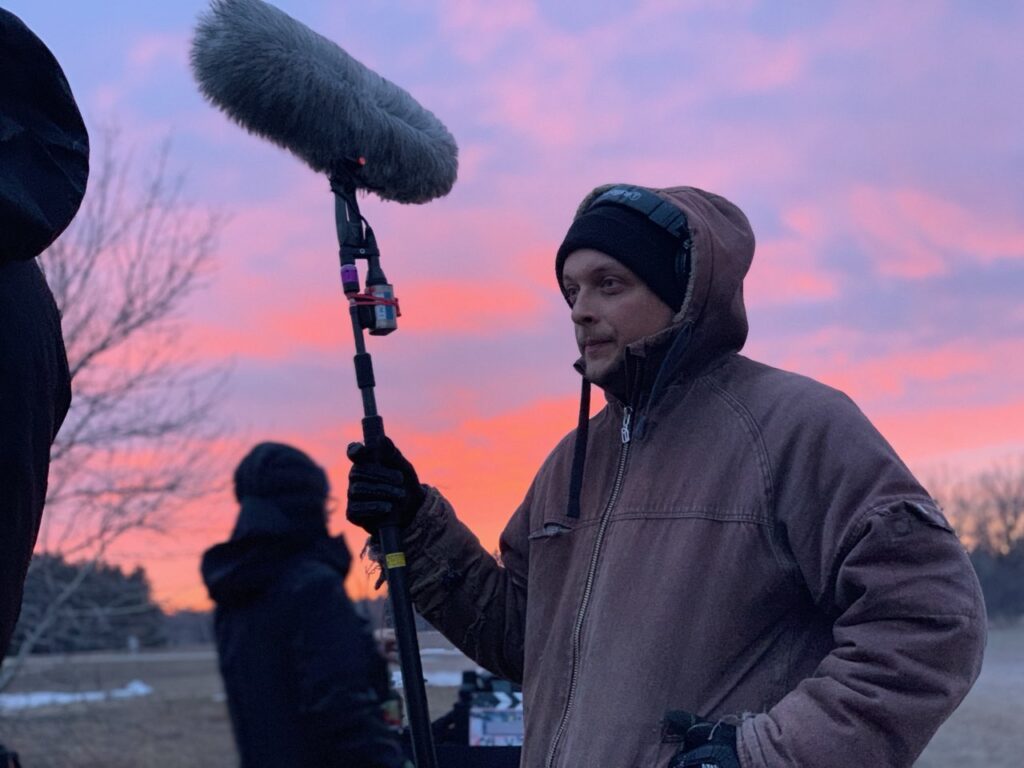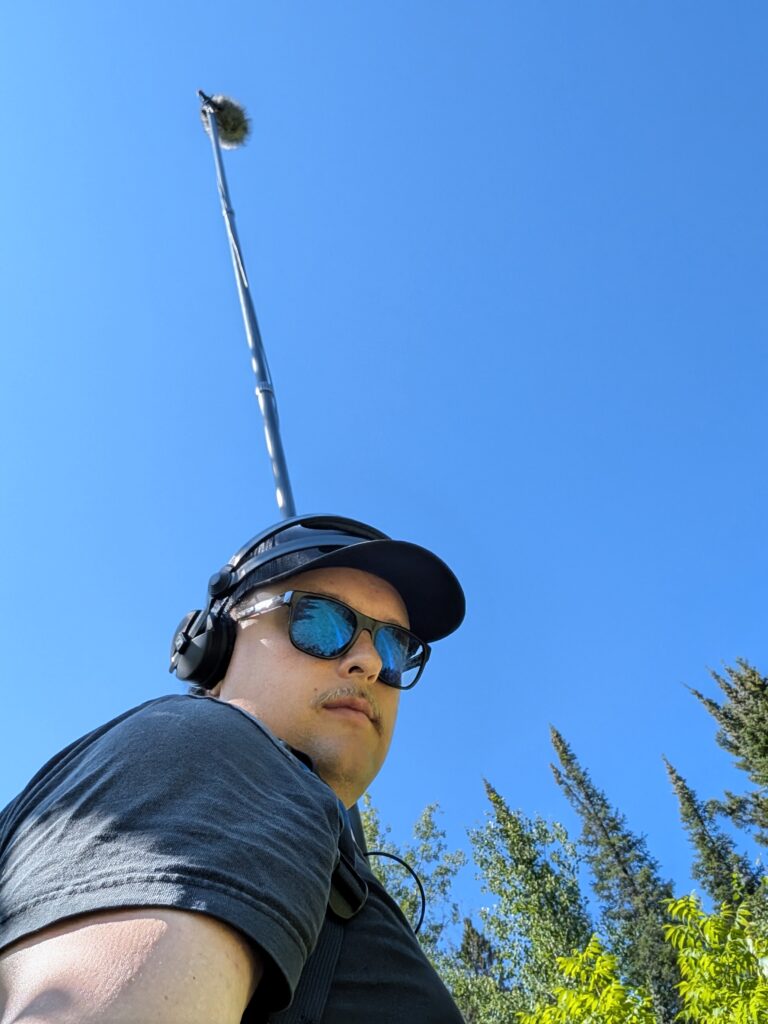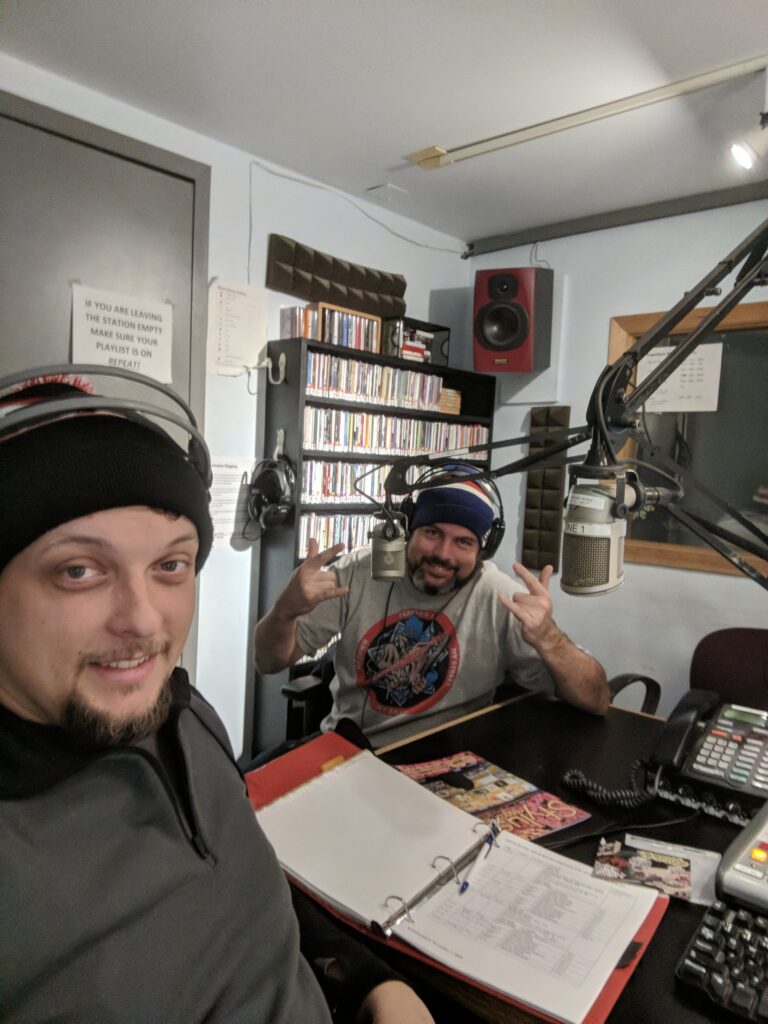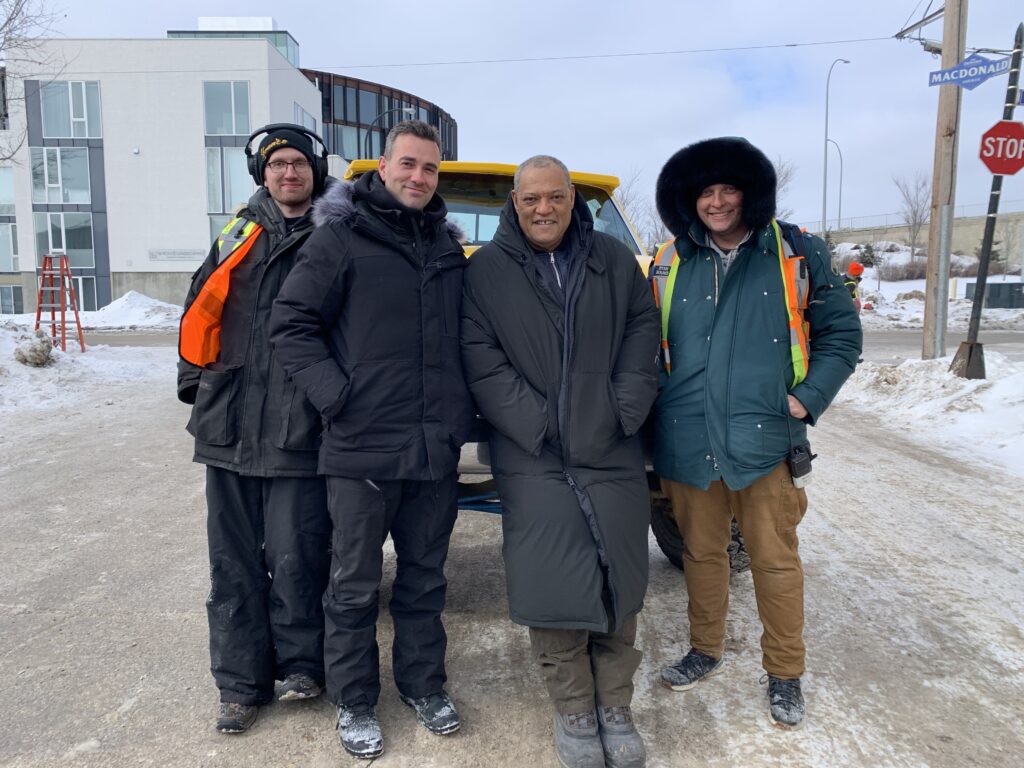
Ryan has been a dedicated sound technician in Winnipeg’s vibrant film industry since 2016. He brings a wealth of experience capturing pristine audio for diverse productions.
From documentaries to features, he’s honed his skills in location sound recording, boom operating, and managing complex audio setups. His commitment to clear, consistent sound ensures seamless integration into the final mix, contributing to compelling storytelling.
He is passionate about the collaborative spirit of filmmaking and eager to continue contributing his expertise to Winnipeg’s growing cinematic landscape.
When and how did you start in the media production industry?
In grade 8, Freeze Frame came to our school to help us re-create an ancient Greek mythological tale as a short film. My group told the story of the Minotaur with a Matrix theme. The project was a finalist at the Freeze Frame festival and we were able to watch it at the theatre in Portage Place Mall. I think it’s still up on YouTube somewhere, so if you really want to see my initial film editing chops you can try doing a deep dive.
What area of the film industry do you work in now and why?
I work in the sound department. I was drawn to sound cause in the past I collaborated with a co-op music studio/event space where I held large events and DJ’d. Without knowing it at the time, I was actually learning how to do the work of a sound technician. When I was working on my bachelor’s at The University of Winnipeg, a teacher’s assistant said, “If you get into sound and you’re good at it you’ll be working before you even graduate”. He wasn’t wrong and I almost didn’t get my degree because I was working shows so much.

What has been a substantial change in the industry since you started?
I worked with the late Leon Johnson very early in my career so I got to hear a lot of stories about the changes in film workflow.
By far the biggest change is the use of wireless transmitters. The boom mic, when properly operated, will always sound the best; however, post-production has become more and more adamant that every single cast member has a radio mic on them. It may feel like too many mics, but working with Russ Dyck taught me there is no such thing as too many mics on set.
If you could give yourself advice today to yourself in the past, what would it be?
Take your time. There are a lot of external pressures to excel in your career as quickly as possible. They call work in this industry “a craft” for a reason: it takes time to develop. Every position on set matters. You may feel like you’re not contributing by doing coffee runs for your department, however, that goes further than you know. People will notice when you have a good attitude towards the work you do. It can take a while to get to your dream position, so just embrace the journey it takes to get there.
What advice would you give to someone starting in the media production industry?
Embrace your uniqueness. Everyone is artistic in this industry and has their own side project. I went from filmmaker to DJ to attempted tech start-up founder to magician to 9-5 marketer to juggler to radio host to sound technician. The creativity you develop in side projects can become the fuel for creative problem solving in all aspects of your career.
Why is learning and training important?
I believe there is a major deficit in film education when it comes to sound. Many, if not all film schools focus on the visual aspect of filmmaking, and sound is just a sub note in the curriculum. Many students are not exposed to professional location sound gear.
Its supply and demand though, if someone really wants to have a sound priority education they should go to a sound engineering program. Unfortunately, this has lead to many filmmakers who have a poor understanding on sound which forces them to learn as they go. Formal education isn’t mandatory in this industry, you can teach yourself by doing your own projects, and training and mentorship really expedites things. I’ve learnt a lot from every mixer/sound team I’ve worked with in my career, which has made it a fun journey. There is a takeaway in every project/workshop if you keep your ears open.

What are some of the films, TV series or even books that have inspired you? How about anything new you’ve been into?
I fell in love with sound after watching Gladiator. Getting to see my first R-rated movie with my parents and being struck by the score really left a lasting memory. Jurassic Park is another, my mom was terrified when she saw this film in theatre. She said it was the first time surround sound was introduced and the fullness of the T. rex roar really scared her. Right now I’m reading Rick Rubin’s The Creative Act and I am really into his philosophy on creativity.
Is there something about you or an interesting past experience that you’d like to share with your colleagues?
Having Keanu Reeves come up to the sound cart and hear him say “Can Ryan change my batteries” really showed how much he cares about the crew on the shows he works on. It was my first time being on a major motion picture set, huge thanks to Edgar Ozolins for giving me the trainee opportunity, so, I really appreciated Keanu’s way of breaking the ice so that even me, as the lowly sound trainee, felt seen on set. At the end of the shoot where I said it was an honour to work with him, he replied, “No it was an honour to work with you,” which got me a little teary-eyed.
Is there someone within the film industry you would like to work with and why?
I’ve worked with Laurence Fishburne and Keannu Reeves, so getting to work with Carrie-Anne Moss would feel like the trifecta of matrix cast members.
In terms of sound-minded filmmakers, Ridley Scott would be the dream director. It would be awesome to see his approach to filmmaking firsthand. I like to think he has a very sound-conscious workflow.

Where do you see yourself ten years from now?
I’m currently an Associate member of the Cinema Audio Society and would love to be a full member so I can vote on movies that are up for sound awards. I’d also love to one day do an article in their quarterly magazine (free to access here https://cinemaaudiosociety.org/archived-cas-quarterly/) to share my experiences as a Sound Mixer and participate in the spirit of sharing to build the sound community in the film industry. It would be nice to win one of their awards as well.
FTM is a non-for-profit charity and member of the Province of Manitoba’s Sector Council program funded through the Economic Development, Investment, Trade and Natural Resources. FTM builds a highly skilled and adaptable film industry workforce to support the activities of Manitoba production companies. FTM collaborates and partners with members of the film industry to identify training needs to support workforce development.
